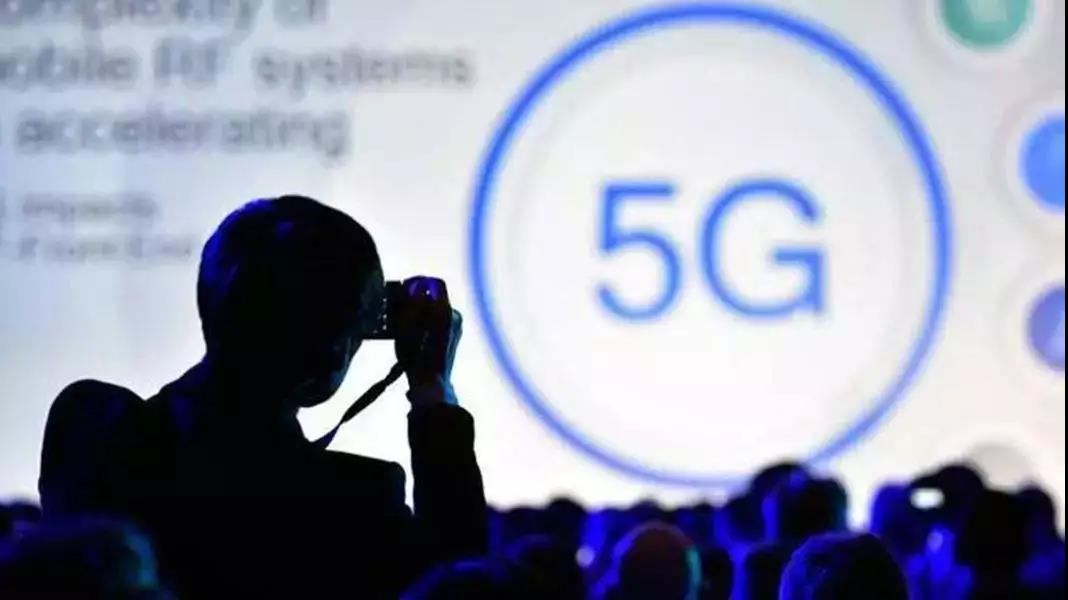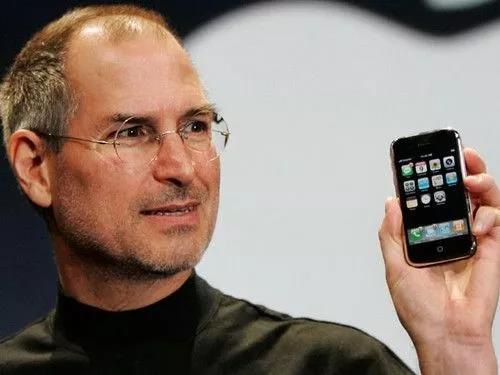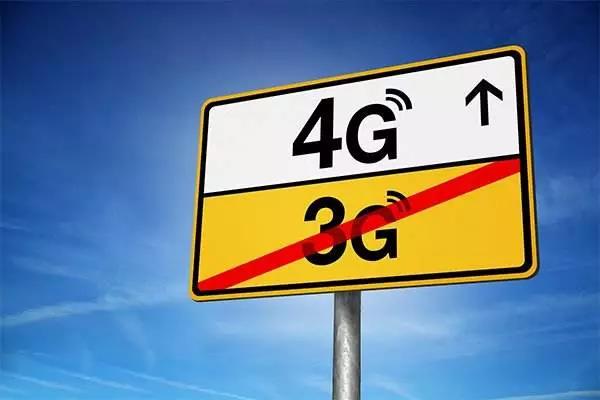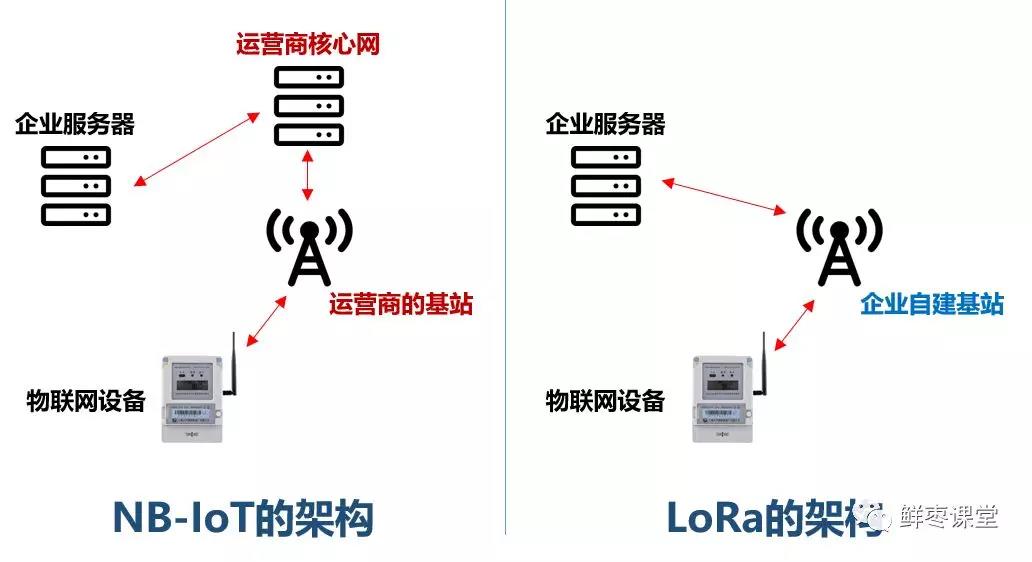
In our communication industry, there has always been a saying that if the communication standard is singular, it must fail; if it is even, it must succeed.
What does that mean? That is to say, odd number communication standards like 1G and 3G have failed. Even Numbers, like 2G and 4G, worked.
Thus, people have summed up a bit of a "fatalistic" law. And some people will this rule, set in the upcoming 5G body, that the fate of 5G must be toward failure.
Is that the case? The science behind this? Coincidence? Will 5G really fall into this trap?
Today, I want to express my views on this topic: even if 1G and 3G fail, will 5G also fail?

Indeed, since the birth of mobile communications, the singular failure, dual success, this is a fact for all to see.
The first 1G, born around 1978, was developed by MOTOROLA and bell LABS. This generation of communication system, is an analog communication system, poor anti - interference, poor voice quality, plus the price is expensive, so basically has not been widely promoted.

Later, aiming at the disadvantages of 1G, communication engineers developed 2G using digital communication technology to replace 1G. 2G was put into use in the early 1990s and was quickly recognized by users and widely used in the construction of public mobile communication networks in various countries.
It was also during this period that China established its own national mobile communications network using 2G technology. The majority of ordinary people, also in this period, began to contact mobile communication, and gradually used mobile phones.

And when was 3G born?
2000, to be exact. In may of that year, the ITU (international telecommunication union) established the three major wireless interface standards of WCDMA, CDMA2000 and td - scdma, and wrote them into the 3G technical guidance document "international mobile communication plan 2000" (imt-2000 for short).
However, the fate of 3G is very bumpy, can be said to be born at a bad time.
Think about it, what happened in the international community at that time? The Asian financial crisis in 1997 and the U.S. financial crisis in 2001. The us Internet bubble and the bursting of the tech bubble triggered a wave of global tech bankruptcies, including in the communications sector.
In that period, many communications enterprises were affected, performance plummeted, struggling.
3G was not recognized and supported by the market at that time, some countries did not have money to build, and some countries built after no one used. The global communication industry has been immersed in thinking about the value of 3G and full of doubts about the future of mobile communication.
At that time, our country's 3G strategy is to wait. On the one hand, I hope that the technology and industrial chain will be more mature (especially td - scdma), so as to reduce the cost of network construction. On the other hand, it is also affected by foreign influence, so hesitate to wait and see.
Eight years.
Only in 2008, the year of the Beijing Olympics, did China officially issue 3G licenses, lagging far behind foreign competitors.
It was Mr Jobs's iPhone, introduced in 2007, that saved 3G. Then there is android, launched by Google in 2008. The advent of the iPhone and android systems ushered in the era of smart phones and triggered the demand for mobile Internet.

In the explosive growth of mobile data service, 3G can not meet the needs of users. So, naturally, 4G LTE was born.
LTE's 100Mbps bandwidth perfectly meets the speed requirement of mobile Internet, no matter for chat, game, video or audio.

As a result, LTE has gained the full support of operators and users and become the most mainstream mobile communication standard.
Above is the general process of failure of 1G/3G and success of 2G/4G.
It can be seen that behind the success and failure of each communication standard, there is a deep background of The Times, is not entirely advanced or backward technology itself, nor is it decided by individual countries, enterprises or interest groups.
So, the upcoming 5G, what is the face of a situation?
Not long ago, there was a hot article called "5G will be a complete failure", I believe many people have seen. "There is no progress in 5G technology," the authors argue. "the demand is imaginary, so it is bound to fail." It is a big blow to 5G, causing consternation inside and outside the industry.
In fact, the question of 5G has not been interrupted. Even the head of huawei has said that "5G has actually exaggerated its role". "in fact, the human society does not have such an urgent need for 5G." (though the Pope later changed his tune and sang 5G.)
In my opinion, at present, the whole society is too enthusiastic about 5G and lacks rationality. High expectations for 5G will be detrimental to its healthy development.
As I have mentioned many times in previous articles, many features of 5G, such as high speed, low latency and massive connection, are currently very limited in demand scenarios from users and few places can be used.
Technology without demand has no future. Although 5G boasts comprehensive integration and powerful indicators and parameters, it is difficult to replace any existing communication technology quickly.
In the future, various communication technologies will coexist and develop together.
Currently available communication technologies include 2G/3G/4G/5G/ nb - iot /LoRa/eMTC, wi - fi/bluetooth /Zigbee/Zwave/NFC, etc., as well as satellite communication, microwave communication, wired communication, etc., each of which has its own advantages and disadvantages. According to the advantages and disadvantages, there are corresponding USES (applicable scenarios), it is difficult to say who can completely eliminate who, who to replace.
A few years ago, I thought 5G would replace wi - fi, but later I found that to be unrealistic. While 5G can match or even surpass wi-fi in speed, it's hard to beat wi-fi in cost.
According to the current business model status quo, even if 5G traffic can be unlimited monthly, monthly rent is not. Even without monthly rentals, 5G communication modules are unlikely to be cheaper than wi-fi in the short term. Even if there is no traffic fee, no monthly rent and the module cost is low enough, users' privacy needs must also be taken into consideration. Users' willingness to let their data flow through the operator is also a big problem.
Moreover, the existing wi - fi terminal such a large stock, it is not a short time to say that the waste can be destroyed.
The same goes for nb-iot and LoRa.
Many enterprises are reluctant to use the operator's nb-iot network and choose LoRa to build their own network and base stations, mainly because of cost and data privacy. If nb-iot is used, although it seems to save the cost of network construction, the use of modules is long - term, and the traffic fee and monthly rent fee are also long-term. Also, the data is flowing through operators, and companies are very sensitive about that.

Even within mobile communications, there is complementarity between technologies. 4G and 5G are complementary, nb-iot and eMTC are complementary, even the aging 2G is currently carrying a large number of IoT terminals, why? Cheap price good signal!
Therefore, the development of 5G is bound to be a long-term process.
At this stage, the question before us is not whether the technology is strong enough, but whether the way of thinking and cognition is mature. In other words, what limits the development of communication technology is not the indicators of technology itself, but the environment and soil on the demand side.
In recent years, we all talk about consumption upgrading and demotion. In fact, communication is just like this. Individual enterprises have tried consumption upgrading, but it does not mean that the overall environment is ready for consumption upgrading. Most enterprises do not have the desire to upgrade consumption (communication). On the one hand, it may be because of the cost - input - output ratio; on the other hand, it may be because the enterprise's management level, employees' ability and business model do not have the conditions for upgrading consumption (communication). Even if it is forced to upgrade, it may be image engineering, difficult to maintain, and finally become a decoration.
Although it is often said that we have entered the Internet era, mobile Internet era, digital era and intelligent era, I believe that we are still in the early stage of the digital era and more than 99% of the digital potential has not been tapped.
Data is forever. People and things themselves are constantly generating data. These data, have energy, have value. Without the support of communication technology, these people or things are data islands.
The significance of all communication technologies, including 5G, is to break through the data island.
The first industrial revolution, which began in Britain in the 1760s, ushered in the replacement of manual labor by machines.
In the 1860s, after the bourgeois revolution, came the second industrial revolution, and mankind entered the "electric age".
The third industrial revolution, which began in the 1950s, is also called the computer and information technology revolution.
However, in fact, the degree of informatization varies greatly among different industries and among different countries and regions. In some high-tech industries, digitalization is quite thorough and even reaches the threshold of intellectualization. Some industries may just start mechanization, or even remain in the manual stage.

At present, we stand at the gate of the fourth industrial revolution. The role of communication technology, just like blood vessels and nerves, helps countless terminal nodes to better exchange data, share data, fuse data and make use of data. Better control of these nodes will help them become more powerful factors of production, driving productivity gains, increased productivity, and higher revenues and profits.
According to a word that is very popular now, it is -- enable.
I have always insisted that although 5G is a hot topic, it will be more conducive to publicity and promotion through this hot topic. In fact, instead of 5G enabling, it is more accurate to say that it is the Internet of things enabling.
At present, the existing Internet of things technology can cover more than 80% of the demand. And 5G is more like icing on the cake than a timely help. If the existing Internet of things technology can not solve the problem, then even if 5G came, it is likely to not solve.
The Internet of things opens up digital silos to create conditions for productivity gains. How to utilize the power brought by the Internet of things and optimize the existing production model and business model is what every enterprise needs to think about and explore according to its own situation.
It is equipment business and operator are pushing a plan for the enterprise now, have a bit actually "the emperor is not urgent eunuch is urgent" meaning. Where is the pain point of the enterprise, where is the efficiency bottleneck, of course, the enterprise itself is the most clear.
The maturity of sensor technology, embedded technology and semiconductor technology promotes the digitalization of production factors. The maturity of Internet of things technology helps cloud and cloud end become a more compact system together. Meanwhile, it creates conditions for the application of big data. Data is the sleeping gold mine, the Internet of things is the mining car, cloud computing is the ore processing plant.
At present, this mining system is operated by human. Once AI and artificial intelligence are added, the potential of explosion will be unimaginable.
For many industries, the development sequence should be: mechanization, electronics, digitization, Internet of things, big data/cloud, artificial intelligence. At present, many "smart agriculture", "smart city" and "smart medical treatment" are only in the Internet of things and cloud, not even big data, let alone artificial intelligence.
Rome was not built in a day.
Instead of pushing 5G forward, it is better to think seriously about what factors are restricting the progress of The Times and the upgrading of productivity.
Personally, I think these factors may include: the cognitive level of enterprise managers and employees, the quality of the macroeconomic situation, the maturity of the industrial chain, the level of labor costs (the pace of aging), and the balance between performance and cost of related specific technologies, etc.
In a word, yibaespecially believes that the success or failure of 5G is not important, but the success or failure of the Internet of things is the key.
Looking at 1g - 4g, it is not so much that 1G and 3G are failures, but rather that 1G and 3G are pioneers and pioneers who advance with the purpose of sacrifice. 1G brings the breakthrough of zero mobile communication. Although it is not perfect, it shows the convenience and fun of mobile phone to human beings. 3G brought the breakthrough of mobile Internet. Although it was born in a bad time, it opened the window of the era of mobile Internet. 1G and 3G paved the way for the success of 2G and 4G. There's no way we can skip 1G or 3G and go straight to 2G and 4G.
The same is true for 5G. Not only 5G, including nb-iot and LoRa, but also eMTC, bluetooth and Zigbee, they try to show us the beauty of "Internet of everything", but the top is likely to be 6G, 7G or even 8G.
The pit you can not escape, the tuition fees you can not save. We should never stop trying just because we are afraid of failure.
Failure is not terrible, stop exploring, is the beginning of the real nightmare.